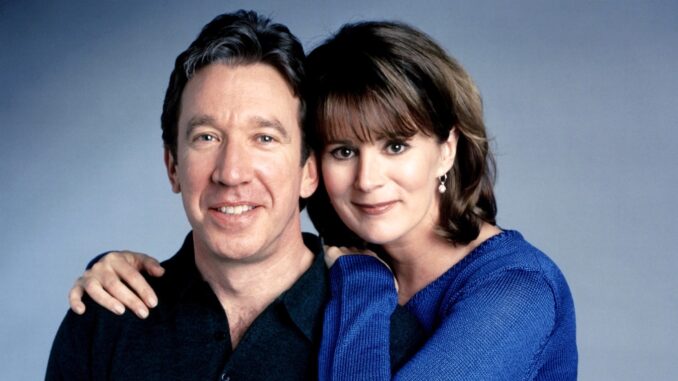
The nostalgic hum of the Home Improvement theme song still conjures images of wholesome laughter, a cacophony of power tools, and the genial rivalry between Tim "The Tool Man" Taylor and his long-suffering, sagacious wife, Jill. For eight seasons, Patricia Richardson embodied Jill, the intelligent, grounding force who often brought the fantastical world of "Tool Time" back to earth, anchoring a show built on the premise of masculine ambition and domestic antics. It was a comforting, familiar world, seemingly devoid of the harsher realities of industry.
Then came the quiet bombshell: the show, a primetime stalwart, ended not because of dwindling ratings or creative fatigue, but, as Patricia Richardson herself revealed, because she dared to ask for equal pay. This revelation transforms a beloved sitcom into a poignant, illustrative case study, a microcosm of the persistent, often insidious, battle for equity that continues to plague not just Hollywood, but workplaces worldwide.
To understand the weight of Richardson's claim, one must first appreciate the role of Jill Taylor. She wasn't just the wife; she was the linchpin. Tim's character, for all his boisterous charm, was often a caricature of well-meaning cluelessness. Jill was the intellect, the emotional anchor, the voice of reason, and often, the one who untangled the messes Tim created, both literally and figuratively. She was the family’s bedrock, the unseen architecture without which the whole edifice would crumble. Her value to the narrative, to the show's very balance, was immeasurable. Yet, in the deeply ingrained hierarchies of television, the male lead, especially one like Tim Allen who also served as an executive producer, typically commanded the lion's share of the salary.
The "ask" itself, often framed as audacious, is rarely about greed. For Patricia Richardson, it was about acknowledging her comparable worth, the hours, the talent, the undeniable contribution to a highly successful enterprise. It was about recognizing that the fictional balance she brought to the Taylor household should be mirrored by a financial balance in her own professional life. When a woman in a prominent position asks for equal pay, she is not merely negotiating a contract; she is challenging a centuries-old paradigm, a system that implicitly undervalues female labor, regardless of its quality or necessity. She becomes a symbol, a disruptor, often labelled "difficult" or "demanding," for merely seeking parity.
The fallout, as Richardson recounts, was swift and definitive. Her request, alongside her willingness to continue the show for fewer episodes per season to accommodate personal commitments, was reportedly met with an effective termination of the show. While the precise calculus of why a hit series ends is rarely singular—contract stalemates, creative burnout, network politics—the narrative that emerged from Richardson's account painted a stark picture: the price of asking for what you're worth can be the abrupt cessation of an entire venture. It sends a chilling message: stay in your lane, accept the established hierarchy, or risk dismantling the very vehicle that provides your livelihood.
This incident, occurring in the late 1990s, resonates with an unsettling familiarity even today. Decades later, the gender pay gap persists across every industry. Stories continue to surface, from Michelle Williams earning a fraction of her male co-star for reshoots on All the Money in the World, to countless women in corporate offices, tech startups, and academic institutions, fighting for transparent pay scales and equitable compensation. The Home Improvement anecdote is not an anomaly but a potent illustration of how deeply entrenched these biases are, how swiftly the drawbridge can be pulled when a woman dares to assert her economic value. It speaks to the fear of precedent, the discomfort with shifting power dynamics, and the often-unspoken belief that a woman's contribution, while perhaps essential, is nonetheless "lesser" in financial terms.
Patricia Richardson's story, far from being a mere footnote in television history, stands as an enduring parable. It reminds us that behind the laughter and the comforting glow of our screens, real battles for fairness are waged. It highlights the courage it takes to stand up for one's worth in a system designed to keep certain hierarchies intact. And perhaps most importantly, it illuminates why, even in an age of supposed progress, the fight for equal pay isn't just about money; it's about recognition, respect, and the fundamental right to be valued equally for the invaluable work we all contribute to building our collective "home." The legacy of Home Improvement, ironically, now includes an enduring lesson about the very real "improvements" still desperately needed in our world.
